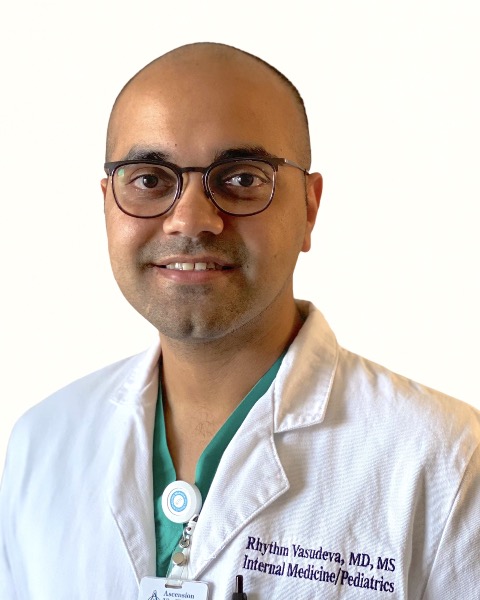Hybrid Point-of-Care Lung Ultrasound Training in an Internal Medicine Residency Program
-

Rhythm Vasudeva, MD, MS
Resident
University of Kansas School of Medicine-Wichita
Wichita, KansasDisclosure information not submitted.
-
AC
Abhiram Challa, M.D.
Resident
KU School of Medicine - Wichita, United StatesDisclosure information not submitted.
-
TP
Tejasri Polana, M.B.B.S.
Medical Graduate
K.L.E. University, United StatesDisclosure information not submitted.
-
EB
Elisha Brumfield, D.O., FACP
Director of Medicine Education - Ambulatory Care
KU School of Medicine - Wichita, United StatesDisclosure information not submitted.
-
BD
Brent Duran, D.O., M.P.H.
Assistant Professor
KU School of Medicine - Wichita, United StatesDisclosure information not submitted.
-
MV
Mohinder Vindhyal
University of Kansas School Of Medicine - Whichita
Wichita, KansasDisclosure information not submitted.
First Author(s)
Co-Author(s)
Title: Hybrid Point-of-Care Lung Ultrasound Training in an Internal Medicine Residency Program
Introduction: Lung Point-Of-Care-Ultrasound (POCUS) may add clinical value at the bedside. The residents’ interest and the educational impact of a hybrid training model in a community-based academic setting are unexplored.
Methods: Internal Medicine and Medicine/Pediatrics residents across all post-graduate years (PGY) underwent a structured hybrid model of POCUS training. Residents filled out anonymous surveys with Likert-type scale responses before and after the training. Questions on the survey were grouped into domains to assess the residents’ interest in learning POCUS, their understanding of fundamental lung ultrasound (US) concepts, and their confidence in its application. Direct comparisons and sub-group analysis were conducted using Fisher’s exact and t-test as appropriate. Data for PGY 3 and 4 were combined for analysis, given the low numbers. Statistical significance was set at 0.05.
Results: A total of 16 and 17 residents completed the pre-and post-training anonymous surveys, respectively. A median of 0 previous lung US was reported, with the distribution showing a positive skew. The overall net difference in residents’ interest in learning POCUS was similar post-training compared to the pre-training survey (100% vs. 75%, p = 0.096), a finding consistent amongst all subgroups. The training revealed a significant net increase in both, the understanding of lung POCUS principles (100% vs 56%, p = 0.008), and the residents’ confidence in its application (100% vs 56%, p = 0.008). The mean score on confidence level was significantly higher amongst all PGYs post-training but greatest amongst PGY 1 and PGY 2. PGY 2 showed the most improvement in confidence scores after the training. Having any previous US experience did not impact the post-training scores for any of the domains. No gender differences were noted.
Conclusions: Implementing a hybrid teaching model resulted in an increased understanding of fundamental lung ultrasound concepts and greater confidence in its application amongst residents. The approach may vary based on the level of resident training. Future studies with an integrated teaching curriculum and a more objective assessment are needed to estimate its clinical impact and provide recommendations for incorporation into the residency curriculum.
